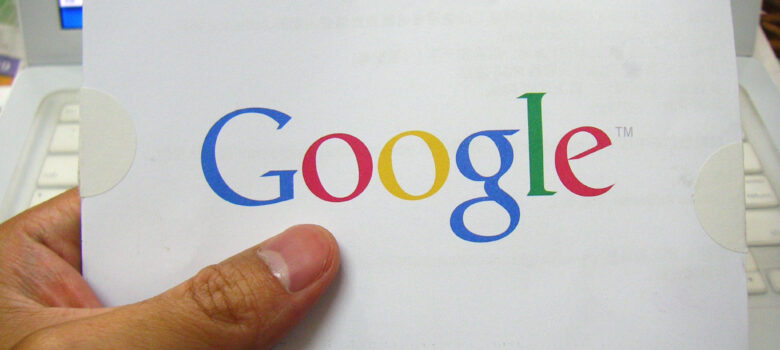The government has announced that it has reached agreement with Google on deal that will ensure that news links are not blocked on the search engine and that the company pays $100 million to support the news sector in Canada. To be clear, this is good news for all given that the alternative was bad for news outlets, the government, Canadians, and Google. Indeed, over the past few months in discussions with representatives of media outlets, the consistent refrain I heard was that there *had* to be a deal. The harm from Facebook and Instagram blocking news links was taking a significant toll with lost revenues, lost traffic, and lost deals, meaning that something had to be salvaged from Bill C-18.
It turns out the way to salvage the bill was essentially to start over by tossing aside most of the core elements in the bill in favour of a single payment by Google negotiated by the government on behalf of the news sector. What is left is a $100 million payment into what amounts to a fund to be managed by the news sector itself. Google has agreed to pay $100 million to a single collective (there will be a battle over which collective will represent the news sector) and the collective tasked with allocating the money based in large measure on forthcoming regulations.
The broadcast sector will remain the big winner, though speculation of the possible removal of the CBC from the system would increase the distributions to the remaining companies. Regardless, allocating the majority of the money to broadcasters presumably helps explain why the government announced a $129 million bailout that expands the available money in the labour journalism tax credit, for which only print and digital publications (known as Qualified Canadian Journalism Organizations) are eligible.
While this is a far better outcome than the blocked links, this is hardly an example of good government policy. First, the loss of Meta from the system not only dropped the estimated benefits of Bill C-18 by $50 million, but the lost links and deals means that there are actual losses that run into the tens of millions of dollars. Indeed, it was only a few months ago that the government said it estimated Google’s contribution alone at $170 million. There was some sense that the extra $70 million was designed to offset the Meta losses, but that was something Google unsurprisingly was unwilling to cover.
Second, the Google deal is largely what was available over a year ago. The government told the Heritage committee its estimates were $150 million in revenue, divided 2/3 to Google and 1/3 to Meta. Google later indicated it was comfortable with the government’s estimates, but preferred a single payer fund model that provided cost certainty. That is ultimately precisely what Google obtained, suggesting that months of uncertainty, reduced investment, and risks to Canadian news outlets could have been avoided.
Third, the reality is that Bill C-18 is now barely at break-even. Google’s $100 million is not all new money. The company was already paying millions in deals for its Google Showcase program with many Canadians news outlets. Those deals will now be cancelled with the single payment replacing the other contributions. There is obviously some new money – particularly for broadcasters – but it isn’t the full $100 million and it must be offset by the losses sustained by the exit of Meta.
Fourth, the government was ultimately able to strike deal largely by changing the law, albeit through yet-to-be released regulations. After claiming for months that it would not get involved in negotiations and specifying in considerable detail what any deals between platforms and media companies needed to look like, the government dropped all of that and simply negotiated the best deal it could get on behalf of Canadian news outlets. The risks to the independence of the press are significant, though the fact that the law no longer functions as advertised might well open the door to trying to negotiate something with Meta that brings news links back to Canada.
I’ve been asked several times today if the Canadian approach will be a model for other countries. While I suspect that many may be tempted by the prospect of new money for media, the Canadian experience will more likely be a cautionary tale of how government and industry ignored the obvious risks of its legislative approach and was ultimately left desperate for a deal to salvage something for a sector that is enormously important to a free and open democracy.











So the Press are now Wards of the State and Google. That should increase the public’s trust in journalists except for their coverage of government and google.
Basically, the government folded to Google, desperately trying to get literally ANYTHING that resembled a “deal”. Google has held all the cards on this debate pretty much from the very beginning and the government proved that they had nothing to work with. The Canadian government walked out of these negotiations with pocket change for the most part.
Well, yes, except that for the major news media will likely get the bulk of the money and the folks that previously had agreements with Google will get shafted. But since those guys were more likely to be more critical of the government than the big players…
Pingback: Canadian Government Folds: Hands Google Everything and Calls it a "Deal"
Pingback: They’re hunting our children – The Dominion Report, December 2, 2023 – Dominion Report
Pingback: Law and Media Round Up – 4 December 2023 – Inforrm's Blog
Pingback: Google Caves In Canada: Agrees To Pay $100m News Bribe To Avoid Direct Link Tax - E-Linux
So far Google has won every round in every country!
In response to the recent developments surrounding the government’s legislative efforts to align with Google through the Online News Act, it’s crucial for businesses to adapt their online strategies. Achieving a prominent online business visibility in Peoria is now more vital than ever, given the evolving digital landscape. To navigate these changes successfully, businesses should consider leveraging digital marketing services in Peoria. Such services play a pivotal role in enhancing online presence, ensuring that businesses stay visible and competitive amid legislative shifts and industry dynamics. By strategically incorporating Online Business Visibility Peoria into their digital marketing strategies, businesses can proactively position themselves for success in this evolving landscape, fostering resilience and sustained growth.
Pingback: The government guts the Online News Act in an attempt to fix a mess of its own making - The Hub
This article really piqued my curiosity. I want to learn more about this topic after reading it. Suika game
Pingback: Why the Bell Media layoffs and government’s failed media policy are connected - The Hub